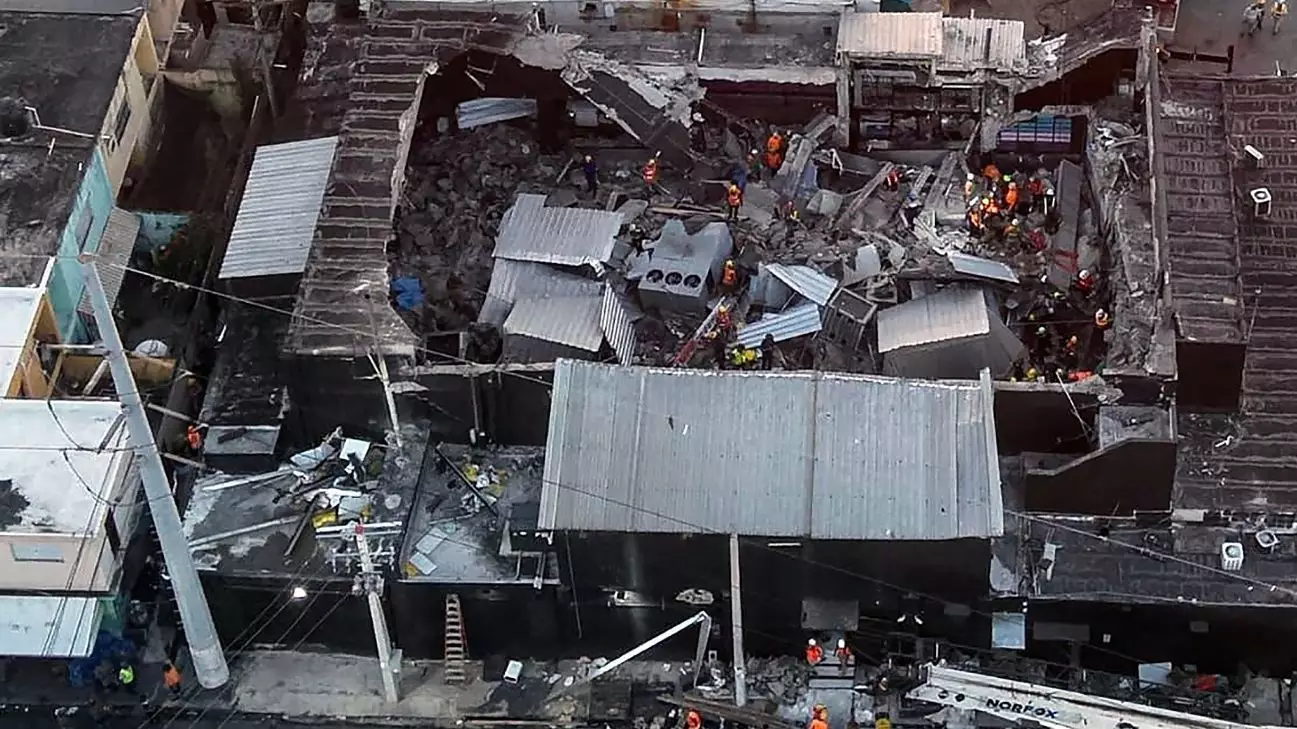In the early hours of a fateful Tuesday, the vibrant Dominican Republic witnessed a tragedy that would send shockwaves through the nation and beyond. A lively merengue concert at the Jet Set nightclub in Santo Domingo turned into a nightmarish scene when the roof of the venue suddenly gave way, claiming the lives of over 70 individuals, including notable figures from the world of baseball. Among the deceased were former major leaguers Octavio Dotel and Tony Blanco, as well as Nelsy Cruz, sister of celebrated MLB All-Star Nelson Cruz. This unforeseen event not only illustrates the fragility of life but also casts a dark shadow over a celebration of culture that should have brought joy.
As the early morning hours rolled in, revelers were enjoying the atmosphere, unaware that disaster was looming overhead. At approximately 1 a.m., the roof collapsed, leading to a heart-wrenching scene that authorities described as a “mass casualty incident.” This startling turn of events has left families shattered, and communities mourning. While the cause of the collapse remains uncertain, questions inevitably arise regarding safety regulations and oversight in venues designed to hold large crowds.
Heartfelt Condolences from Major League Baseball
The impact of this tragedy rippled through the world of sports, resonating profoundly within Major League Baseball (MLB). Commissioner Rob Manfred expressed heartfelt condolences and solemnity in a public statement, emphasizing that the connection between baseball and the Dominican Republic runs deep. Many Dominican players have made indelible marks on the sport, and the loss of beloved figures such as Dotel and Blanco only amplifies the sense of grief and loss.
Tony Clark, the executive director of the MLB Players Association, echoed these sentiments, emphasizing the union’s unity with the Dominican community during this tragic time. The emotions felt are not merely those of loss but reflect a community brought together by the extraordinary accomplishments of their athletes. This incident is a grim reminder that even within the world of sports, where athletes are often seen as larger-than-life figures, the unexpected can bring untold heartache.
The Human Cost: Stories of Dotel and Blanco
Focusing on Octavio Dotel, his career spanned 15 years across 13 different teams, where he etched his name into baseball history with 109 saves and a 3.78 ERA. He played a pivotal role in helping the St. Louis Cardinals secure a World Series title in 2011. His untimely demise, occurring just hours after the collapse, after being rescued from the rubble, serves as a poignant reminder of life’s unpredictability. Likewise, Tony Blanco, despite a more modest MLB career with 56 games, shaped his legacy through his journey in the game, which included playing in Japan and being a father to a young baseball prospect within the Pittsburgh Pirates organization. Each story represents more than mere statistics; they encapsulate lives filled with dreams, ambitions, and connections.
A tragic moment came when Nelsy Cruz made a desperate call to the President of the Dominican Republic shortly after the roof collapsed, expressing her entrapment. The emotional weight of such a call carries a haunting significance, illustrating the raw vulnerability that we all share. Tragically, she too succumbed to the aftermath of the collapse, leaving loved ones to grapple with the void left behind.
Rescue Efforts: A Race Against Time
As the sun rose on this forty-eight hour horror, the urgency of rescue teams became glaringly apparent. Rescuers worked tirelessly, amidst heavy debris and broken concrete, striving to locate survivors and provide aid. The sight of firefighters and emergency personnel clearing the wreckage symbolizes their dedication, but it also underscores a lingering fear that many may have already lost their lives. The Dominican National Police reported that nearly 160 individuals were injured, deepening the distress felt across the populace. President Luis Abinader’s presence at the scene conveyed both authority and solidarity, solidifying the government’s commitment to support the victims’ families and assist in rescue efforts.
Despite the ongoing situation, the resilience of a community emerged amid the chaos. Heart-wrenching stories of camaraderie and bravery began to surface. Strangers helping each other navigate the aftermath, sharing warm embraces, and offering shelters are testament to the strength and solidarity within society. However, the question still looms: how can we ensure that such a disaster never happens again?
Reflections on Safety and Accountability
While emotional tributes to the victims share the stage with urgent narratives of rescue, a critical dialogue regarding safety in entertainment venues is necessary now more than ever. How did such a highly attended venue suffer such catastrophic failure? The need for stringent regulations and thorough inspections cannot be overstated. As the community mourns, it becomes imperative that steps are taken to uphold safety standards, protecting against future tragedies.
This haunting incident should not merely be seen through a lens of grief, but also as a clarion call for accountability from authorities managing public venues. The memory of Octavio Dotel, Tony Blanco, Nelsy Cruz, and the other victims demands a commitment to creating safer environments for future generations to enjoy.

